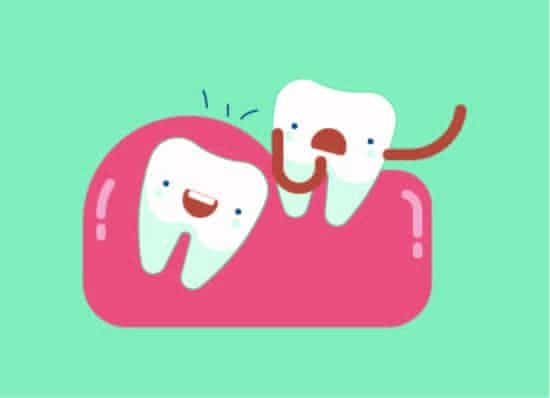One of the most common dental surgeries performed is wisdom teeth removal. Wisdom teeth are in the back of the mouth that generally “come through” between the ages of 17-25. In today’s fast-moving world, the younger age group associated with wisdom teeth removal need to know what to expect post-surgery and how quickly they can be back on their feet. Although this article suggests remedies and ways to deal with pain, the best way to create a plan for recovery is by talking to your dentist.
After Surgery
 Discussing the best road to recovery with your dentist, before surgery, is the first step. One thing to establish with your dentist is the use of anesthesia. People will not be able to drive for 48 hours if general anesthetics were used during surgery. If possible, it is a good idea to take 1 or 2 days off work or school after surgery. Your dentist should give clear information on any medication to take and what to do to help the healing process. Some things to help with wisdom teeth pain include:
Discussing the best road to recovery with your dentist, before surgery, is the first step. One thing to establish with your dentist is the use of anesthesia. People will not be able to drive for 48 hours if general anesthetics were used during surgery. If possible, it is a good idea to take 1 or 2 days off work or school after surgery. Your dentist should give clear information on any medication to take and what to do to help the healing process. Some things to help with wisdom teeth pain include:
- Holding ice pack to area of extraction
- Biting on gauze
- Taking prescribed drugs to ease pain or swelling
- Taking over the counter pain reliever
How Long Is Wisdom Teeth Removal Recovery?
Recovery time from wisdom teeth removal can vary from patient to patient. The recovery time depends on factors like the way the teeth were removed and how many were removed. Surgery can cause different variations of swelling and pain which can lead to different recovery times. If the dental surgeon needs to use stitches to close the wound, it will usually take about 1 week for those stitches to be removed after surgery.
The healing process can be broken down into the following stages:
First 24 hours: Blood clots will form.
2 to 3 days: Swelling of the mouth and cheeks should improve.
7 days: A dentist can remove any stitches that remain.
7 to 10 days: Jaw stiffness and soreness should go away.
2 weeks: Any mild bruising on the face should heal.
How To Help Recovery
While you may not experience any pain after surgery, you'll likely have swelling and mild discomfort for 3 or so days after surgery. Your mouth may need a few weeks to completely heal. The best way to recover quickly is to check with your dentist and make sure you report any discomfort. A few ways to keep up with proper care after surgery are:
- Use an ice pack on your face to help with swelling
- Use antiseptic mouthwash
- Gently open and close your mouth to exercise your jaw.
- Eat soft foods like pasta, rice, or soup.
- Drink lots of fluids.
- Take the drugs your doctor prescribes to ease pain or swelling.
Taking measures to help your mouth heal is a great way to help with your recovery time but avoiding certain tasks are also important. One of the most crucial ways our bodies heal themselves are with blood clots. After a wisdom tooth extraction, blood clots will form in the place of the extracted tooth. These blood clots help protect the wound from infection as well as help new tissue to grow in the place of the extracted tooth. It is very important not to dislodge these blood clots in the first 24 hours after surgery. To decrease your chances of dislodging blood clots, people should avoid:
- Drinking hot drinks
- Brushing teeth near the extracted area
- Sucking on straws
- Smoking and drinking alcohol
Complications from wisdom tooth surgery are unlikely with proper aftercare. If someone has severe pain, a lot of bleeding, or a fever, they should contact their dentist immediately. At Family Implant and Cosmetic Dentistry, we take great care in providing our patients with quick and safe care before, during, and after wisdom teeth extraction surgery. If you think you or a loved one's wisdom teeth are coming in, give us a call today to find out a proper plan for your surgery.



